Las Vegas, devastated by the 2008 economic crash, struggles with coronavirus shutdown
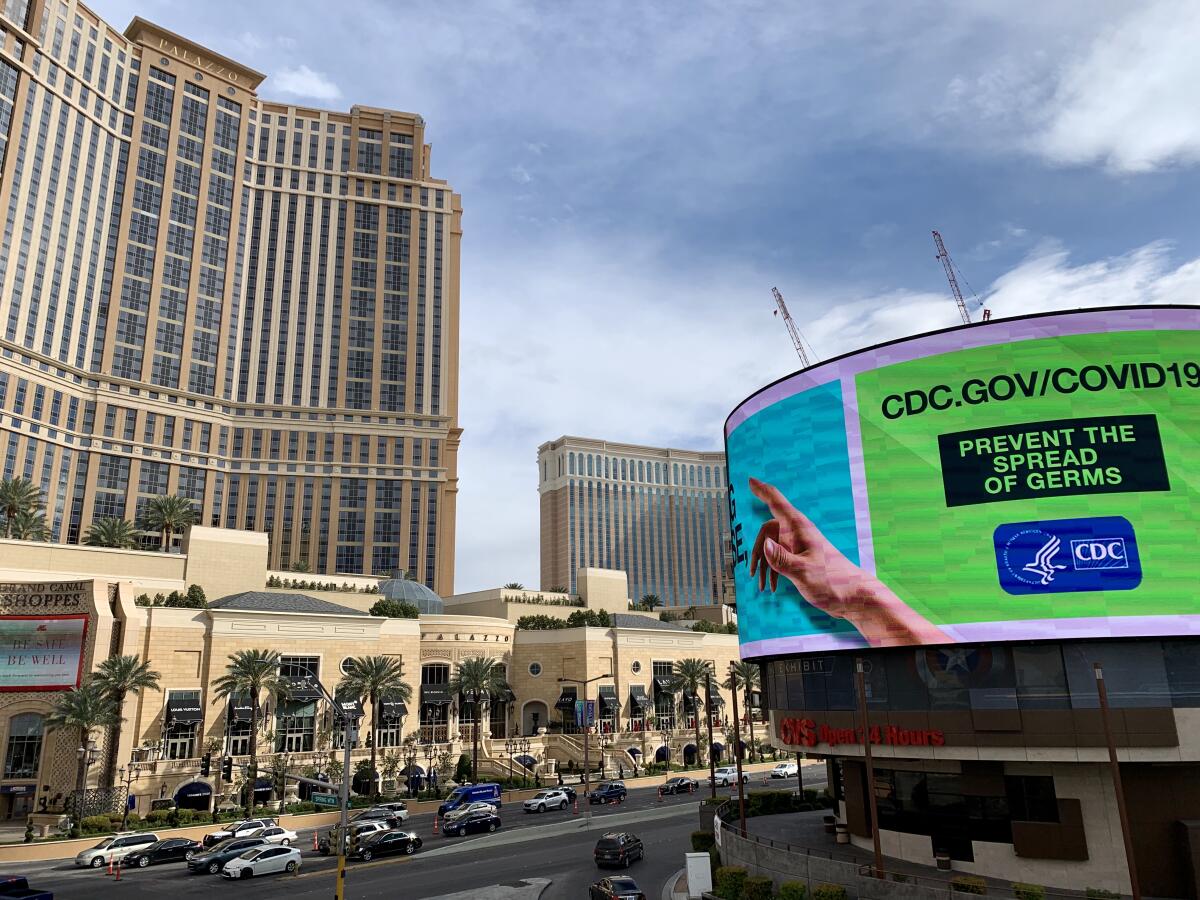
LAS VEGAS — It was just two weeks ago that Las Vegas native Carlos Rosales Jr. told his cousin that business at his new barbershop was doing so well that he was considering hiring a third apprentice.
After living through nearly a decade of financial uncertainty following the 2008 economic crash, the military veteran felt optimistic again. But that feeling evaporated last week when Rosales closed the barbershop following a statewide shutdown of non-essential businesses in an effort to contain the deadly coronavirus.
“I don’t know how I’m going to pay my mortgage or car payments on my new truck,” he said.
The virus has shaken Las Vegas’ economy in an unprecedented way, ushering in a new reality for thousands of locals who only recently emerged — some still battered — from the last recession. Those who lost jobs and houses during the early 2010s carry those memories onto a precarious landscape of new economic challenges.
Asked to compare this to the 2008 financial crisis, which racked Las Vegas, Julie Langille, 45, a showgirl and entertainer for much of her adult life, said this is worse. “This is a little scarier. Before, yes, it impacted our industry, but it didn’t shut our city down,” she said. “It’s never been that everything has to stop for a period of time.”
In many ways, the Great Recession hurt Nevada more than any other state. Heavily reliant on tourist dollars, Nevada, where casinos blur in the desert heat, is viewed as an economic bellwether for the rest of the country. Driving the state’s economy is Las Vegas, home to the Strip’s $6.6-billion gaming industry and an estimated 2.2 million of the state’s 3 million residents.
Around 186,000 people lost their jobs statewide due to the recession. Employment dried up, tourism stopped, construction projects stalled and people slid into foreclosures. The state was still reeling years after the crash; in 2015 Nevada led the nation in new foreclosures, according to RealtyTrac.
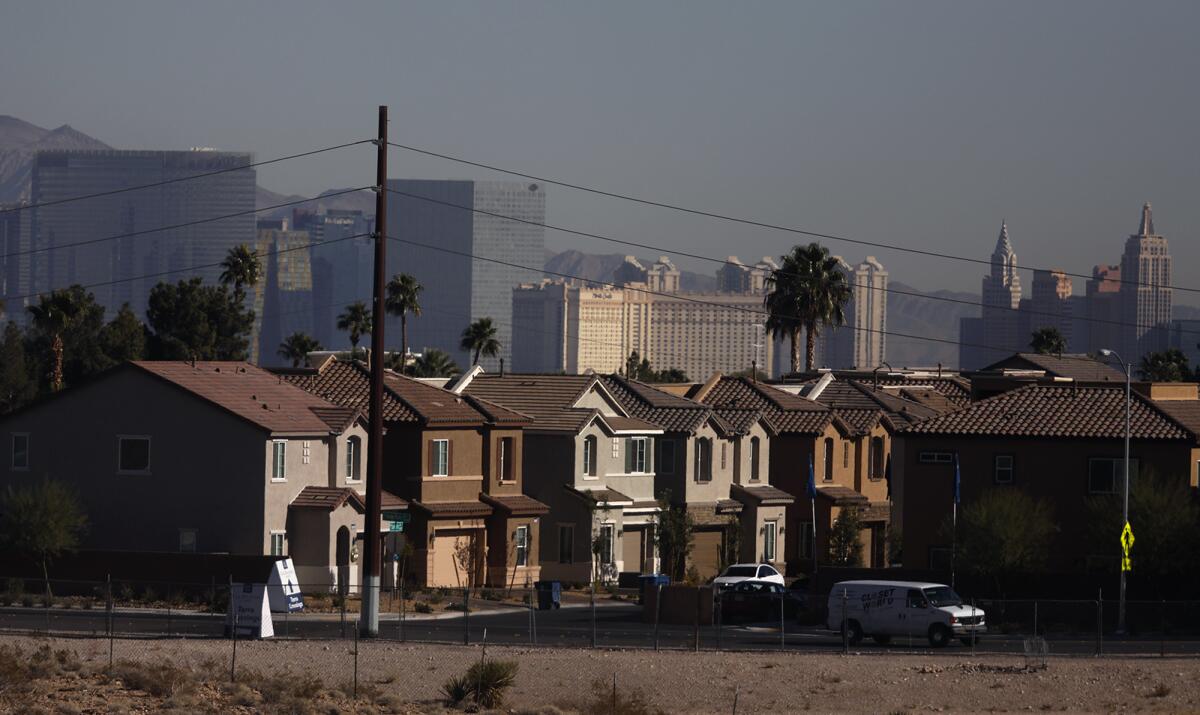
In response, the state set an ambitious goal to diversify its economy with financial incentives, tax abatements and workforce training programs. But after Gov. Steve Sisolak ordered non-essential businesses to close on Friday, threatening criminal citations for those that fail to comply, the coronavirus pandemic now threatens to serve as a critical stress test.
Back in 2009, Rosales was jobless for a year and his father, a construction worker near the Strip, lost his house to foreclosure. In recent years, however, their fortunes improved. With construction back on the rise in Sin City, his father bought two houses: one in 2014 and another one in 2017. And a year later the 35-year-old Rosales bought a three-bedroom house in Clark County.
Although his family weathered the last crisis, he’s unsure they can do it again. He tries to keep his worries to himself; he doesn’t want to frighten his wife and children.
“I keep thinking about what I can do,” he said. “It’s in the back of my head all day.”
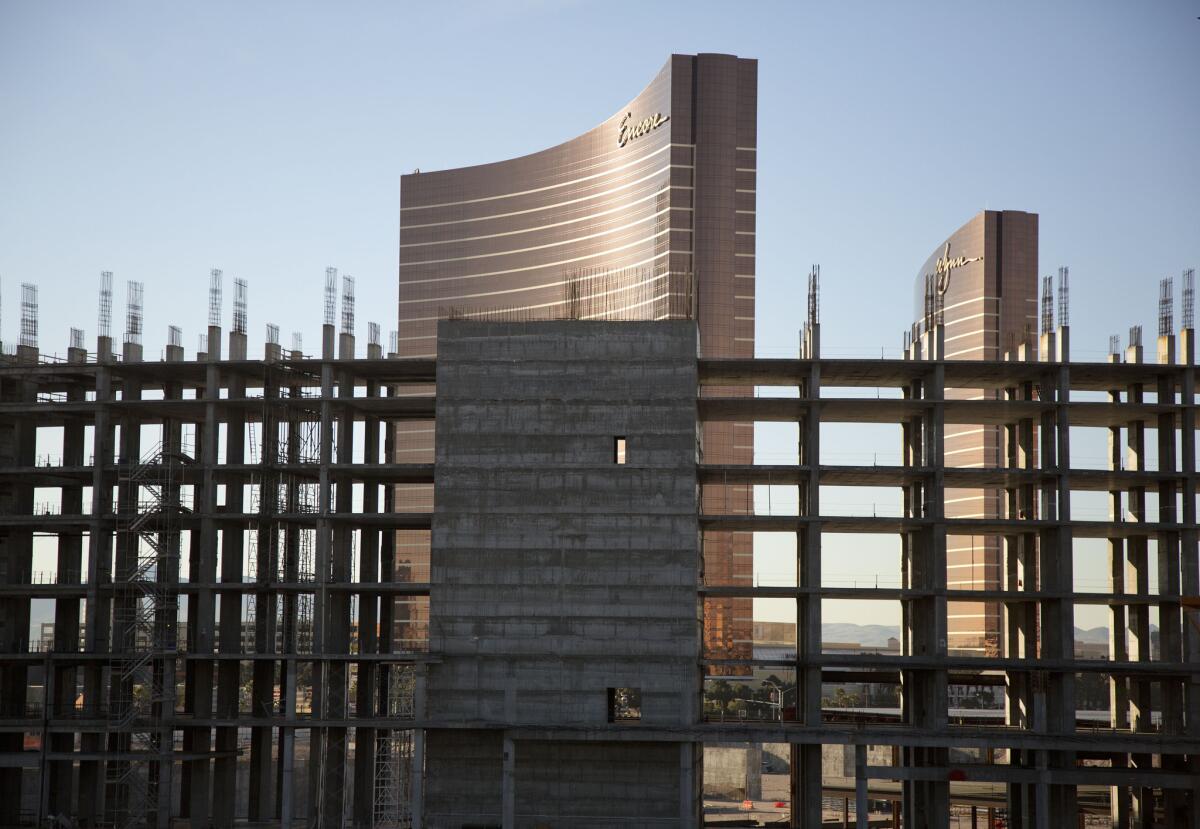
In a high-risk, high-reward economy that depends heavily on Americans’ expendable income, there’s an implicit understanding that livelihoods ride on unpredictable whims. Around 40% of jobs in the state are either in leisure, hospitality or retail. A recent study by the Economic Policy Institute found that Nevada is likely to lose 5.3% of private sector jobs.
The impact of a coronavirus-led downturn in Las Vegas could be more devastating than the 2008 financial crisis. It’s a town built and run largely on the backs of hospitality workers who cater to tourists. In 2018, hotels and casinos in southern Nevada alone employed around 164,400 people, which made up 16.8% of the region’s total employment.
Unite Here, a labor union that represents 300,000 workers in the hospitality industry, estimates that between 80% and 90% of its workers could lose their jobs in the coronavirus fallout.
But Las Vegans know this is a territory of inherent risk. Whether they’re born and raised, or moved here with dreams of dollar signs and the ability to buy a house in the low 200s, they are stubborn through hard times. Car payments may be missed; lost wages will sting. But there’s a frontier we’re-in-this-together mentality among many residents.
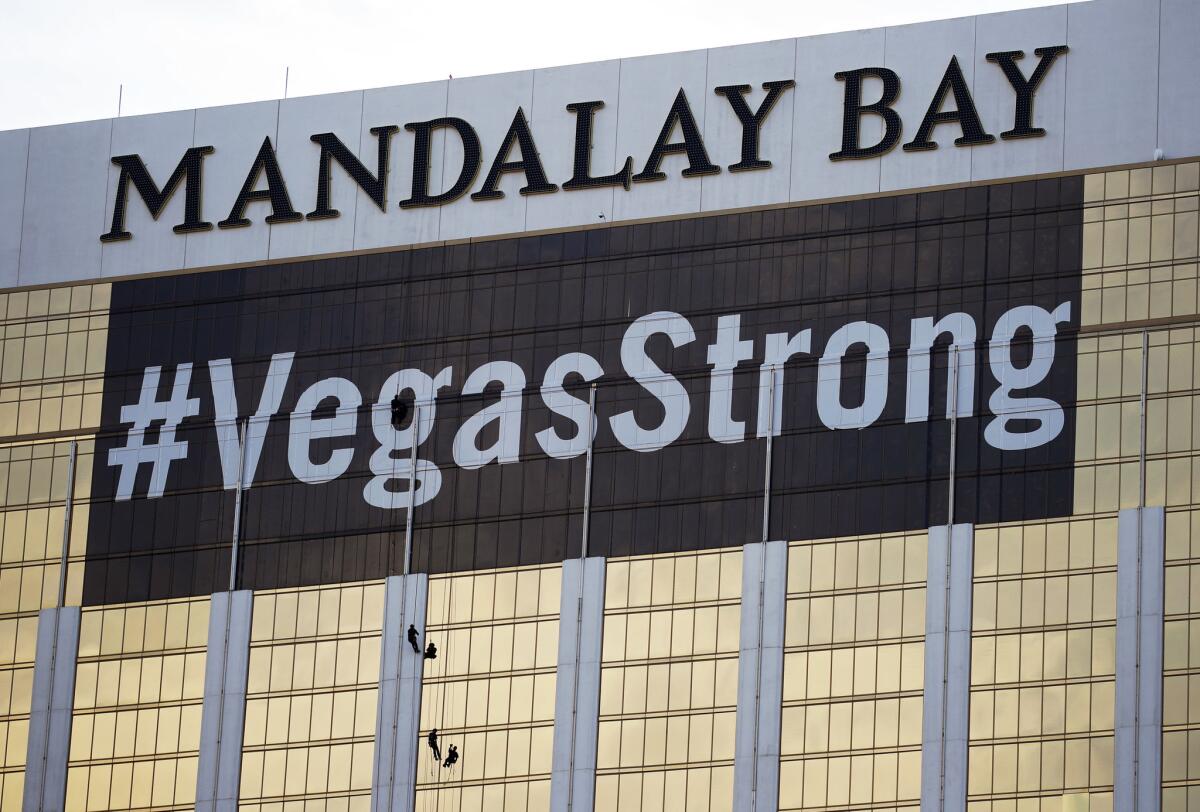
The phrase “Vegas Strong,” which gained popularity after the 2017 Route 91 Harvest Festival shooting, is more than a platitude — it’s become something of a mantra for those who are facing economic tremors that may soon grow into something far worse.
Last Thursday, when taxi driver Curtis Gillespie, 61, was told not to come to work anymore, it was a moment that felt all too familiar. He learned life does not progress linearly when he was fired from his job making doors in 2010, shortly after the housing market collapsed. And again when his wife died a few years ago.
He’s choosing to face this crisis like he did before. He figures a man does better with grace and empathy than he does by complaining. “Other people have it worse than me,” he said. And with more time on his hands these days, Gillespie said he plans to spoil his three-year-old Chihuahua, Molly.
“It’s just me and my girl these days,” he said.
After filing for unemployment, he hopped in his truck and drove to PetCo to pick up some dog treats. When he left, he spotted a cab parked near him. He knocked on the window.
“I was laid off this morning,” Gillespie told the taxi driver sitting inside. “How are you doing?”
“So far I still have a job,” the taxi driver replied.
Gillespie reckons that with unemployment and money he’s got saved in the bank, it’ll be enough to help him get through April. He hopes by then public health officials will have the pandemic under control so that he can get back to work.
“I’ve learned to save money in case of emergencies, and now that’s coming in handy,” he said.
For employees in Vegas whose livelihoods depend on tourists, the coronavirus is a double-edged sword.
Langille, the showgirl, is a long-time Las Vegas entertainer. She got her start in 1997 at the Rio’s “Masquerade Show in the Sky,” a Carnival-themed show complete with flung beads and seductive dancing. Over the decades, showgirl revues fell out of favor as the popularity of acts like Cirque du Soleil skyrocketed.
Her last show was at the now-demolished Clarion Hotel and Casino in 2015. The final showgirl production on the Strip, “Jubilee,” closed the following year. Since then, Langille has had to get creative to make a living: She does corporate and private events, conferences, birthdays.
“I also hustle,” she said. She and other showgirls pose for photos with tourists on Fremont Street and the Strip. That revenue is sometimes more than she made performing in actual shows. But the near complete elimination of foot traffic severely curtails her ability to make a living.
“If people do not visit, I cannot run my business and I cannot get paid to do what I do,” she said. “If tourism stops then entertainment stops. Everything that I do is on the verge of stopping.”
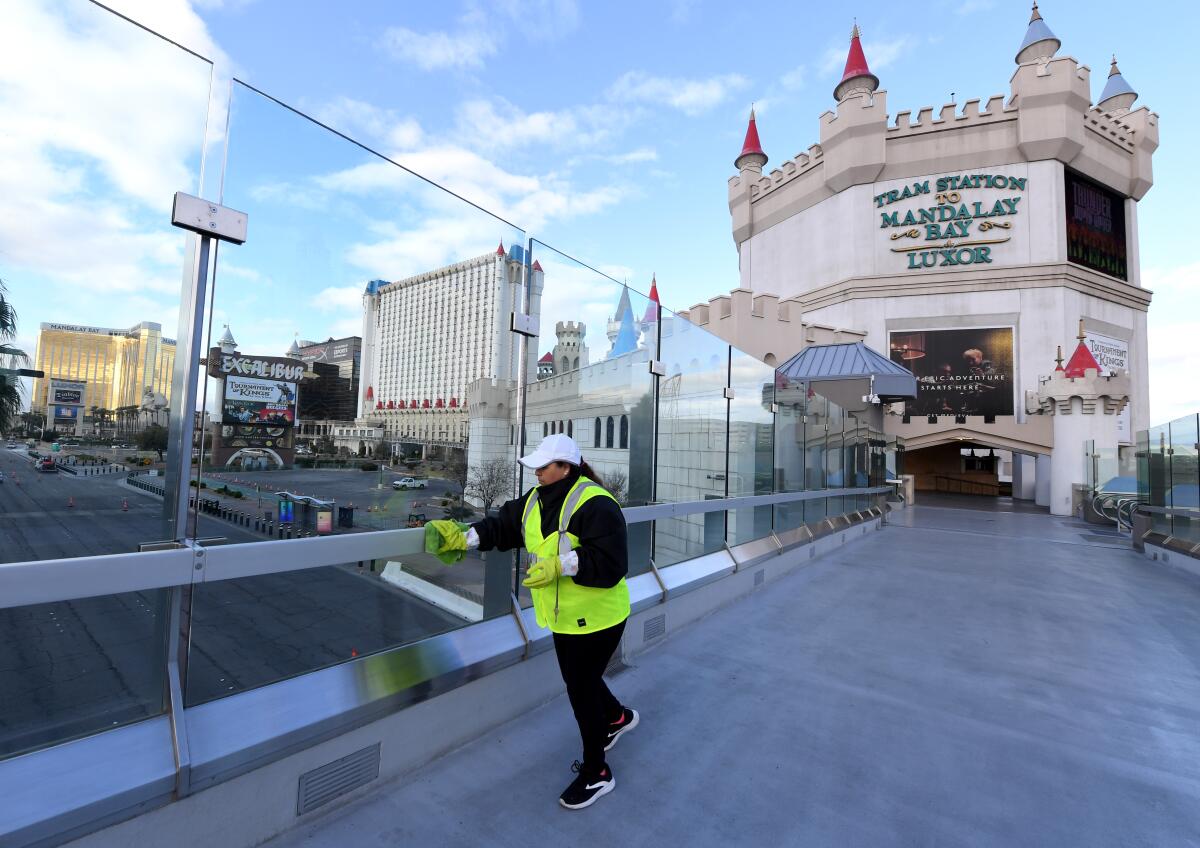
For independent contractors like Langille, the pandemic is devastating — the loss of work on top of health concerns and a desire to preserve public safety. “You’re worried about your job and you’re worried about the virus,” she said. “You want to say, ‘Vegas Strong, let’s go out there and do what we can do.’ And the scary part is, we kind of have to do that.”
While it’s unclear how much the coronavirus outbreak will damage Las Vegas’ economy, the fallout for recent city transplants is already crippling.
Such is the case for 40-year-old Amy Schinzel. Having not lived in the city during the last recession, the dental assistant is worried about the future for her young daughters.
The Henderson, Nev., resident moved to Vegas nearly three years ago. She was laid off last week and now faces troubling, unanswered questions: How long until it’s safe to go back to work? Will her boss be able to keep her? Should she continue saving money she had put aside for her May wedding? Will she need that cash to pay her mortgage and payments on her 2019 Hyundai Tucson that she bought last August?
When the economy crashed in 2008, Schinzel was a young professional in San Diego. She hadn’t set down roots. That’s when she decided to move to Nevada. She’s worried about what options her kids will have post-coronavirus, in a city that’s only as successful as the packs of crowds it draws.
”I just don’t know what to do when I don’t know how long this pandemic will last,” she said as she walked down the aisles of a Dollar Tree on a recent afternoon.
That her life is being shaped by a mercurial, deadly virus makes it that much more unnerving.
“I don’t know how long I’ll be without a job,” she said, “so it’s hard to make these decisions.”
More to Read
Sign up for Essential California
The most important California stories and recommendations in your inbox every morning.
You may occasionally receive promotional content from the Los Angeles Times.












